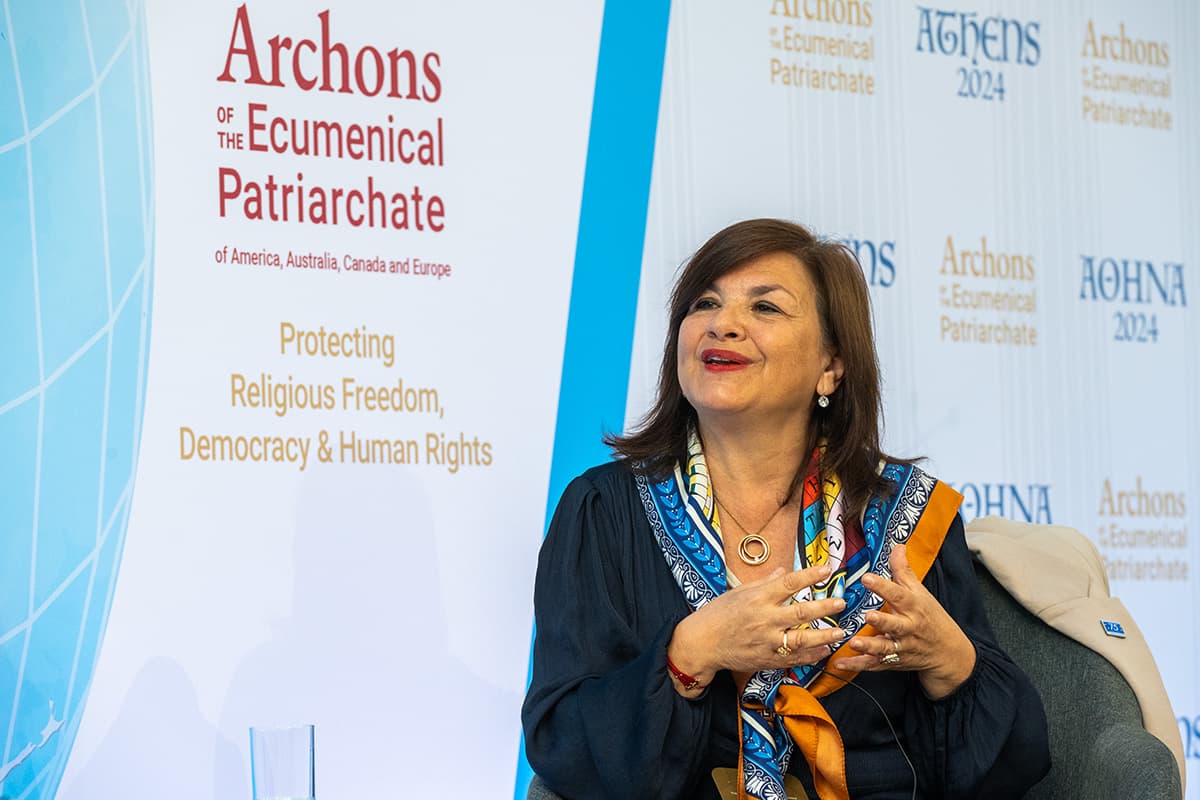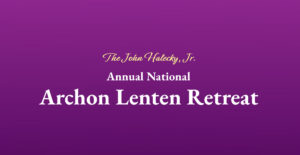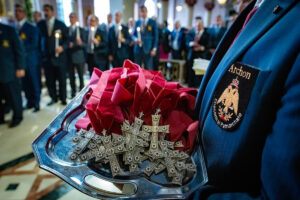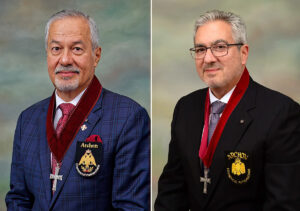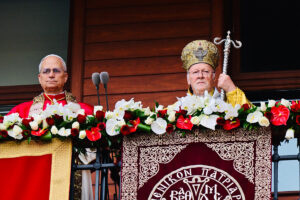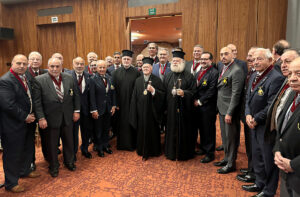The Second Session of the 4th Archon International Conference on Religious Freedom took place at the Zappeion Hall, an enduring icon of Greek civilization, in Athens on Tuesday morning, May 27, 2024. The keynote speaker was Dr. Despina Chatzivassiliou-Tsovilis, Secretary General of the Parliamentary Assembly of the Council of Europe; serving as Convener was Archon Constantine Sideridis, and moderating was Dr. Elizabeth H. Prodromou, a professor in the International Studies Program at Boston College and a Non-Resident Senior Fellow at The Atlantic Council’s Eurasia Center.
Archon Sideridis referred to the three previous Archon Conferences on religious freedom, in Brussels, Berlin, and Washington, D.C., noting that this present Conference is taking place in the cradle of civilization and birthplace of democracy. He reiterated the Archons’ commitment to fostering women’s representation and participation both in the Church and the society at large, and noted the distinction of having two world-renowned female leaders on the stage at the same time.
Dr. Chatzivassiliou-Tsovilis observed that this year marks the seventy-fifth anniversary of the founding of the Council of Europe, and the fact that freedom of religion is a fundamental human rights. She pointed out that His All-Holiness Ecumenical Patriarch Bartholomew had referred to the UN’s Universal Declaration of Human Rights during his remarks during the Official Opening of the Conference on Monday, and stated that the European Convention on Human Rights of 1950 likewise affirmed the freedom of religion. She stated that the freedom of religion was one of the foundations of democratic society precisely because religion is one of the most vital elements of the believer’s identity.
Calling for intercultural and interreligious dialogue to combat hate speech, Dr. Chatzivassiliou-Tsovilis said that the Council of Europe had forty-six member states, and that membership provided a foundation and platform for the protection of religious freedom and interreligious dialogue.
The intermingling of different cultures and beliefs, said Dr. Chatzivassiliou-Tsovilis, is nothing new for Europe. Yet there are increasing instances of intolerance, hatred and violence, she added, much of it related to Russia’s war in Ukraine and the war in the Middle East. Any framing of Russia’s war against Ukraine as a holy war is a misrepresentation, she declared, as is any understanding of the conflict in Gaza as one between two religions that cannot coexist. The issues involved in both conflicts, she stated, are incredibly complex an sensitive, and few in Europe are unconcerned about them, as recent demonstrations indicate.
Meanwhile, Dr. Chatzivassiliou-Tsovilis noted, Christians are the most persecuted religious group in the world. There is also rising antisemitism and Islamophobia in Europe. In Ukraine, Russia is acting on the basis of a systematic denial of cultural and religious diversity. UNESCO, she said, had documented the destruction of religious sites in Ukraine. The Council of Europe has denounced cultural erasure and is working for justice and reconciliation.
Dr. Chatzivassiliou-Tsovilis also outlined steps that the Council is taking to help member states welcome and accommodate migrants, and to counter unwarranted suspicion of them. The European model, she said, is multicultural. There should be respect for all belief as long as the believers respect the rule of law.
Dr. Prodromou asked Dr. Chatzivassiliou-Tsovilis about the Council of Europe’s stance toward religion, and Dr. Chatzivassiliou-Tsovilis reiterated that the Council recognizes the role of religion in people’s lives. Recalling that His All-Holiness had spoken at the Council of Europe headquarters in Strasbourg, France in 2007, she quoted him: “War in the name of religion is a war against religion.” Dr. Chatzivassiliou-Tsovilis also spoke about efforts to compel the Turkish government to end its refusal to allow legal personality, and hence property ownership, to the Ecumenical Patriarchate.
Likewise, Dr. Prodromou asked Dr. Chatzivassiliou-Tsovilis about Osman Kavala, a human rights activist who is unjustly imprisoned in Türkiye; Dr. Chatzivassiliou-Tsovilis detailed the Council of Europe’s efforts to free him through constructive dialogue.
At the end of the Session, His Eminence Archbishop Elpidophoros announced that there has been a denial of religious freedom not very far from where the Conference was taking place: authorities in Pristina barred Patriarch Porfirije of Serbia and seven accompanying bishops from entering Kosovo and Metohija to attend a meeting of the Holy Synod of the Serbian Orthodox Church at the Patriarchate of Peć. Accepting the wise counsel of Dr. Chatzivassiliou-Tsovilis on the wording of their statement, the Archons unanimously approved a resolution expressing concern over this and requesting that Pristina authorities allow the Patriarch to be admitted and allowed to fulfill his religious duties.
Dr. Chatzivassiliou-Tsovilis was presented with an inscribed crystal obelisk in appreciation for her sharing her wisdom with Conference attendees.
